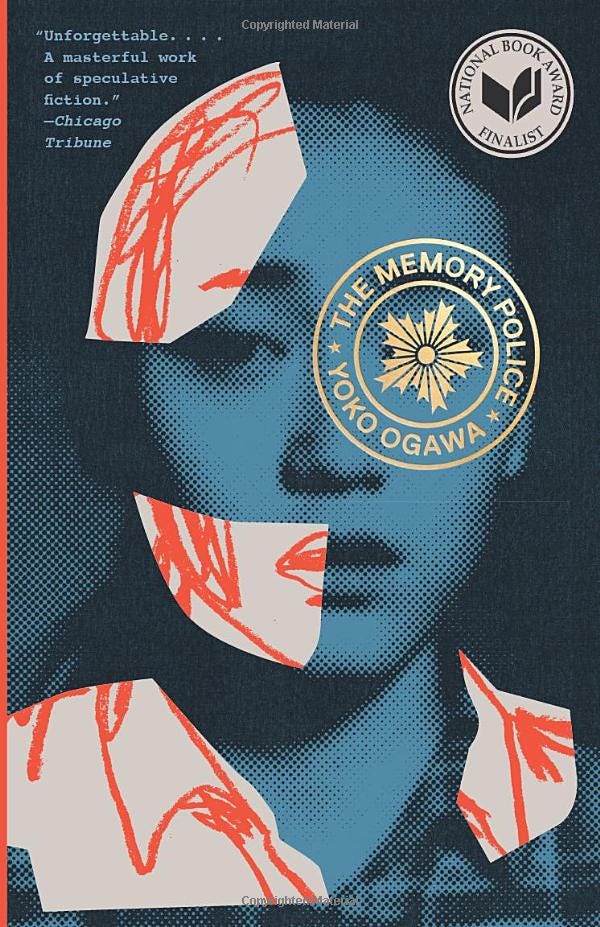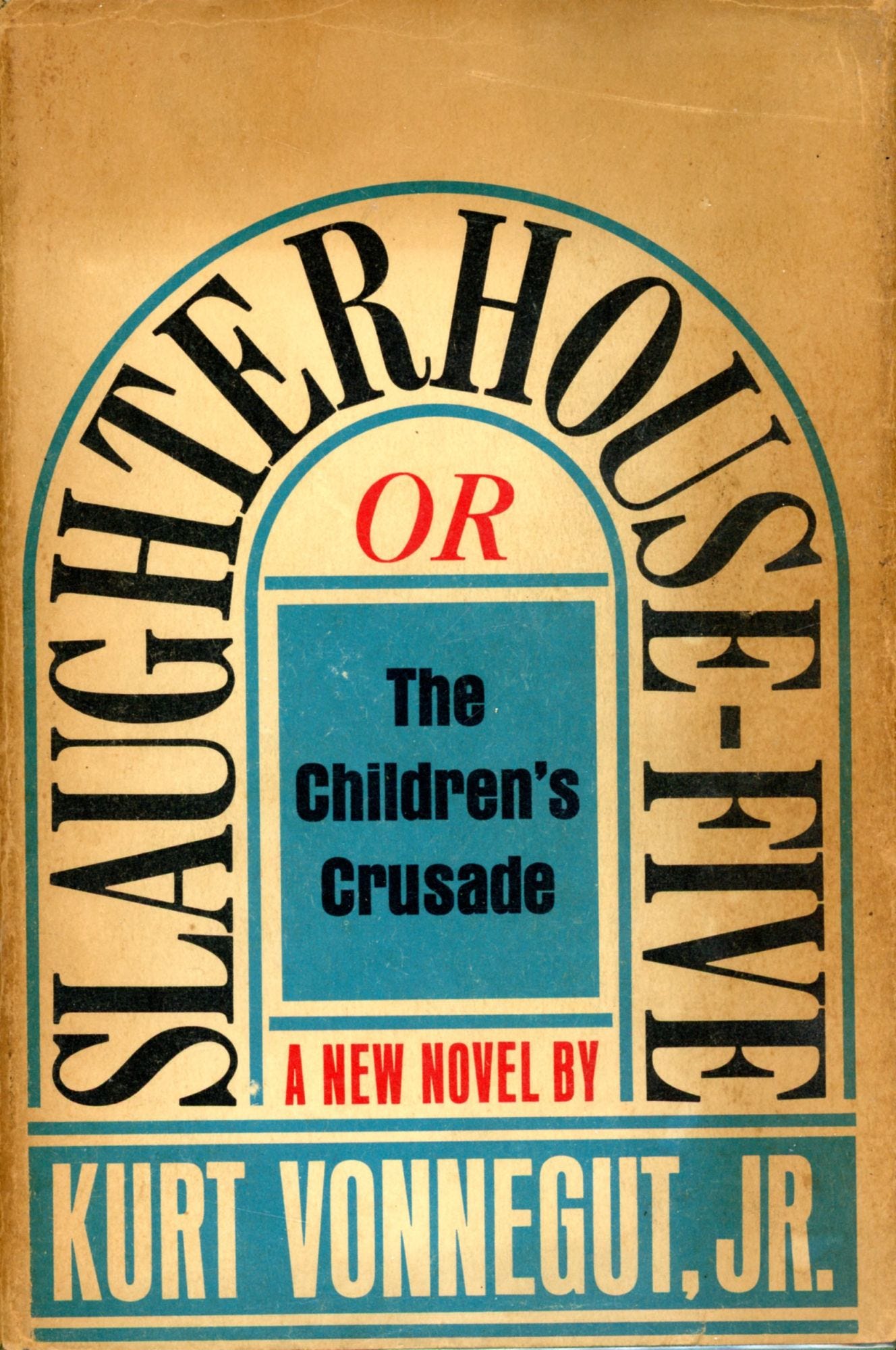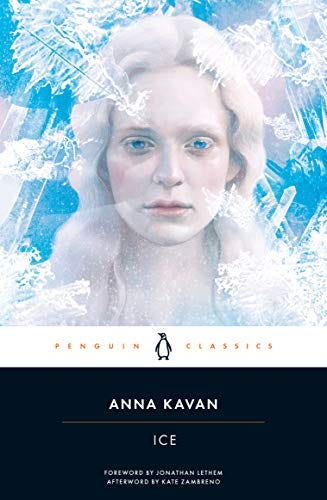[Note: Put cursor over footnote for pop-up.]
This one is for readers who tend to avoid science fiction.
Here's a sample of common sub-genres of sci-fi (plus a few I made up). I've left off many of the most-famous titles (1984, Farenheit 451, The Martian Chronicles, The Time Machine, Stranger in a Strange Land, A Canticle for Leibowitz, Frankenstein, etc.), as well as strictly plot-driven genre sci-fi, horror, fantasy, and magical realism.
The project:
Read (at least) one book for (at least) ten of these categories.
[Note: the books listed here are meant as examples of the categories, not the specific books (though, of course, read any of them you want).]
Alien Invasion
Lagoon, Nnedi Okorafor (2014)
Story of Your Life (novella), Ted Chiang (1999)
Roadside Picnic, Arkady and Boris Strugatsky (1972)
Alternative History
The Yiddish Policemen's Union, Michael Chabon (2007)
The Plot Against America, Philip Roth (2004) 1
The Man in the High Castle, Philip K. Dick (1962)
It Can’t Happen Here, Sinclair Lewis (1935)
Apocalypse
Severance, Ling Ma (2018)
The Children of Men, P. D. James (1992)
On the Beach, Nevil Shute (1957) 2
Classic Sci-Fi
The Left Hand of Darkness, Ursula K. Le Guin (1969) 3
Childhood's End, Arthur C. Clarke (1953)
I, Robot, Isaac Asimov (1950)
Cli-Fi
The Ministry For the Future, Kim Stanley Robinson (2020) 4
Stillicide, Cynan Jones (2019) 5
Gold Fame Citrus, Claire Vaye Watkins (2015)
River of Gods, Ian McDonald (2004)
The Drowned World, J. G. Ballard (1962)
Collision of Worlds
The Three-Body Problem, Liu Cixin (2006)6
Ammonite, Nicola Griffith (2002)
The Sparrow, Mary Doria Russell (1996)
Created Worlds
The Culture Series [10 novels], Iain M. Banks (1987-2012) 7
Hyperion (1989) and The Fall of Hyperion (1990), Dan Simmons 8
Dune, Frank Herbert (1965)
Cyberpunk
Noor, Nnedi Okorafor (2021)
Snow Crash, Neal Stephenson (1992)
Neuromancer, William Gibson (1984)
Deep Space
The Stars Are Legion, Kameron Hurley (2017)
An Unkindness of Ghosts, Rivers Solomon (2017)
Solaris, Stanislaw Lem (1961)
Dystopia [1]
Red Clocks, Leni Zumas (2018) 9
The Unit, Ninni Holmqvist (2006) 10
The Memory Police, Yoko Ogawa (1994) 11
Dystopia [2]
The Handmaid’s Tale, Margaret Atwood (1985)
Brave New World, Aldous Huxley (1932)
Erewhon, Samuel Butler (1872)
Ghosts
Lincoln in the Bardo, George Saunders (2017)
Brickmakers, Selva Almada (2013) 12
Beloved, Toni Morrison (1987)
The Haunting of Hill House, Shirley Jackson (1959)
Post-Apocalypse (Contemporary)
Seveneves, Neal Stephenson (2015) 13
The Book of the Unnamed Midwife, Meg Elison (2014)
Station Eleven, Emily St. John Mandel (2014)
The Road, Cormac McCarthy (2006) 14
Post-Apocalypse (Older)
Where Late the Sweet Birds Sang, Kate Wilhelm (1976)
The Day of the Triffids, John Wyndham (1951)
Earth Abides, George R. Stewart (1949) 15
Queer Sci-fi
A Psalm For the Wild-Built, Becky Chambers (2021)
Finna, Nino Cipri (2020)
Black Wave, Michelle Tea (2017) 16
Rebirth
Life After Life, Kate Atkinson (2013)
Altered Carbon, Richard K. Morgan (2002)
Sheppard Lee: Written by Himself, Robert Bird Montgomery (1836)
Robot/AI
Klara and the Sun, Kazuo Ishiguro (2021)
Ancillary Justice, Ann Leckie (2013)
I Have No Mouth & I Must Scream, Harlan Ellison (1967)
Slipstream [1]
Exit West, Mohsin Hamid (2017)
The Raw Shark Texts, Steven Hall (2007) 19
Slipstream [2]
Blindness, José Saramago (1995) 20
The Windup-Bird Chronicle, Haruki Murakami (1994)
Time’s Arrow, Martin Amis (1991) 21
Steampunk
Boneshaker, Cherie Priest (2009)
Perdido Street Station, China Miéville (2000)
Infernal Devices, K. W. Jeter (1987)
Time Travel [1]
Recursion, Blake Crouch (2019)
The Future of Another Timeline, Annalee Newitz (2019)
Before the Coffee Gets Cold, Toshikazu Kawaguchi (2015)
How to Live Safely in a Science Fictional Universe, Charles Yu (2010)
Time Travel [2]
Doomsday Book, Connie Willis (1992)
Kindred, Octavia E. Butler (1979)
Time and Again, Jack Finney (1970)
Behold the Man, Michael Moorcock (1969) 22
Slaughterhouse-Five, Kurt Vonnegut, Jr. (1969) 23
Utopias
Woman on the Edge of Time, Marge Piercy (1976)
The Dispossessed, Ursula K. Le Guin (1974) 24
Looking Backward, Edward Bellamy (1888)
The Blazing World, Margaret Cavendish (1666) 25
WTF
House of Leaves, Mark Danielewski (2000)
The Unconsoled, Kazuo Ishiguro (1995) 26
Ice, Anna Kavan (1967) 27
Roth imagines a far-right Charles Lindbergh beating FDR in the 1940 election, and the anguish this visits on American Jews. My favorite novel of his.
Nevil Shute was a popular novelist, a journeyman . . . and then he wrote one great book. I think it succeeds so brilliantly because there’s no melodrama, just daily life described in an even tone, as in the other novels, except here people are living out their last days before the nuclear cloud reaches the southern coast of Australia. When the action is hot, writer Debra Gwartney advises, write cool.
[See The Dispossessed, below.]
Begins with a horrific heatwave in India, but evolves into one of the few cli-fi works that offers hope. Also see New York 2140 (2017).
Scottish writer. Military sniper guarding a water train against terrorists. I found the construction hard to track on first reading, but it's short so I read it again and found it extremely effective, heartbreaking even.
Should we stay dark to save ourselves from aliens? This is the Book One of Liu Cixin's Trilogy, Remembrance of Earth’s Past. The others: The Dark Forest (2008) and Death’s End (2010). Highly recommended.
When writing "straight" novels (of which there are 14) he uses Iain Banks. When writing spec-lit he uses Iain M. Banks.
These are the first two of a four-book series, using a Canterbury Tales/Decameron-like set-up, but in a created world. I was totally absorbed by them. Here’s a link:
https://en.wikipedia.org/wiki/Hyperion_Cantos
Red Clock? A woman’s body. A national bestseller, New York Times Book Review Editors' Choice, an Amazon Best Book of the Month, and an IndieBound Indie Next pick. A Best Book of 2018 by The Atlantic, HuffPost, Entropy, and the New York Public Library. Vulture voted it one of the 100 Most Important Books of the 21st Century So Far.
Near-future, dystopian. Here’s what The New Yorker said:
This haunting first novel imagines a nation in which men and women who haven’t had children by a certain age are taken to a “reserve bank unit for biological material” and subjected to various physical and psychological experiments, while waiting to have their organs harvested for “needed” citizens in the outside world… Holmqvist evocatively details the experiences of a woman who falls in love with another resident, and at least momentarily attempts to escape her fate.
And WaPo:
A haunting, deadpan tale set vaguely in the Scandinavian future…Holmqvist’s spare prose interweaves the Unit’s pleasures and cruelties with exquisite matter-of-factness…[Holmqvist] turns the screw, presenting a set of events so miraculous and abominable that they literally made me gasp.
https://en.wikipedia.org/wiki/Ninni_Holmqvist
Several Ogawa novels have appeared in English—The Housekeeper and the Professor (2008) and Hotel Iris (2010)—but the most recent, The Memory Police (2019) actually dates from 1994.
The blurb: An unknown force causes the people of the island to collectively "forget" and lose their attachment to objects or concepts, e.g. hats, perfume, birds and ribbon. These disappearances are enforced by the Memory Police. A few residents (such as the narrator's mother), try to escape the island or hide in safe houses to evade capture.
This work has been compared to novels of Kafka, Beckett, Orwell and others, and was longlisted for a number of prizes. I found it strangely haunting—one of the best works I've read in recent years.
I discovered Almada via Charco Press (based in Edinburgh, Scotland, but specializing in translations of South American fiction, especially Argentinian. Graywolf published another Almada novel, The Wind That Lays Waste (2019).
Our moon inexplicably breaks into seven chunks (by the way, those aren’t the seven Eves); scientists realize they’ll eventually plummet to Earth causing a planet-wide conflagration. This is the story of humanity’s reaction. Stephenson is sometimes criticized for larding his novels with too much explanation, but I found this a remarkably moving book. I read it twice.
McCarthy’s writing has been called lush, Elizabethan, stark, mannered, bleak, etc.—in other words, the voice is complex, dexterous, shape-shifting
My older son, Montana, read this when he was a young teenager; he still talks about its profound impact on him.
https://en.wikipedia.org/wiki/Earth_Abides
I subscribe to a press from Leeds in the U.K., & Other Stories. Their edition of Black Wave was one of the first books I was sent, and, as they say, I devoured it. It was subsequently re-issued by Amethyst Editions, founded by Tea.
[“The AMETHYST EDITIONS imprint champions emerging queer writers who employ genre-bending narratives and experimental writing styles, and complicates the conversation around American LGBTQ+ experiences beyond a coming out story.”]
I love the term slipstream. I think its definition is still evolving, but what I mean by it is a speculative novel set in world quite like our own (i.e., not a sci-fi world), except for some crucial difference.
The New York Times review of Shadowbahn begins:
I wouldn’t be surprised if people reading only the flap copy are put off by its synopsis: “The twin towers reappear intact in the Dakota badlands 20 years after their fall, inhabited only by Elvis Presley’s stillborn twin brother, now an adult, who is traumatized for being the one who survived. This is too bad, since “Shadowbahn” is 9,000 times less hokey and more gratifying — more provocative and challenging — than this summary suggests . . . It’s more like a polyphonic dirge for an America that has perhaps never lived anywhere but in the imagination of those of us who keep fighting for it anyway.
Man wakes up not knowing who he is. Ho hum, another amnesia story? Um, no . . . see the thing is, our guy's on the run from information sharks; he has to hide in the spaces between things, and . . .
This is Saramago’s master work, I think. I kept reading him, but the later books felt contrived in their attempt to work a vein of magical realism or allegory. but in Blindness everything works—a great book.
A man receives an electric shock, which creates, within him, a doppelganger, a separate consciousness who must now begin to figure out who he’s trapped inside of. Simul-taneously, time begins to move backward—each act is seen (thus understood) in reverse. Food is disgorged from mouths, packed into cans, taken to stores. A hand is applied to a woman’s face and instantly she stops weeping (he must be a healer!). We’d soon tire of this device were it not for the compelling thematic reason behind it (I won’t spoil it for you).
Man goes back to locate the historical Jesus. A very dark tale.
My favorite of Vonnegut’s books. He uses his talents—his sci-fi elements, his horror of the evil of governments, and his love of dark humor—to their most serious and well-integrated effect.
I haven’t read enough of le Guin—too bad since she’s a PNW icon, etc. But this book and The Left Hand of Darkness I have read and they are indisputable classics.
Notice the date? Nope, not a typo: https://en.wikipedia.org/wiki/The_Blazing_World#
It was only days after finishing this [on an airplane, hoping we wouldn’t land until I got to the last page], that I understood that all the unreality of the events [it’s a simple story, really: guy comes to a European city to play a concert and things keep getting in the way until he leaves without ever having played] . . . it’s as if we’ve entered a world operating with the logic of dreams—the dislocations, the time confusion, the jump cuts, the way people he doesn’t know seem to know him, and so on. Ishiguro is a daring writer—every book is different, a different experiment. I had somewhat mixed feelings about Klara and the Sun (2021) but it attempts far more than “ordinary” novels that don’t challenge you, that don’t give you more than you expect. I’ll keep reading him.
Ice has become much more widely known in recent years. It's my go-to example of a WTF novel (though it’s often termed slipstream). In this space I can't do justice to this strange novel or to the strangeness of Kavan's life.
https://www.newyorker.com/magazine/2020/03/30/the-curious-creation-of-anna-kavan






I would add your novel, The Inhabited World, to the ghost list. I would say Ursula K. Le Guin's Always Coming Home as one of the best examples of a utopian novel—so much harder to write than dystopia! And The Dazzle of Day by Molly Gloss, which is clearly utopian to my mind.
I'm reading a new translation of We by Yevgeny Zamyatin, originally written in Russian but first published in English by Dutton in 1924. It is a finer novel, so far, than 1984, which it inspired. Le Guin called it "the best single work of science fiction yet written."
Biological Science Fiction would add at least Vonda N. McKintyre's Dreamsnake and perhaps others. Any excuse to include Naomi Novik's novels, especially the dragon series, which is primarily revisionist history. (Begin with His Majesty's Dragon. Dragons were always around, nothing magical about flying lizards. They were small and people encouraged them through selective breeding to become bigger and bigger, smarter and sentient. Napoleon appears. There is humor, but the history is pretty solid.)
I think the "most-famous titles" are great conceptually but lousy novels. [Fahrenheit 451 was better as a short story.]